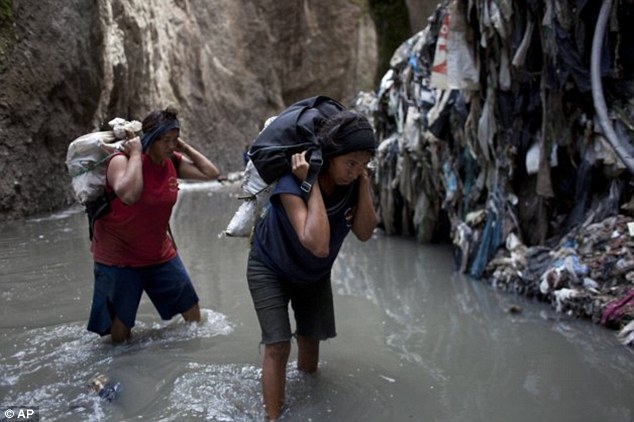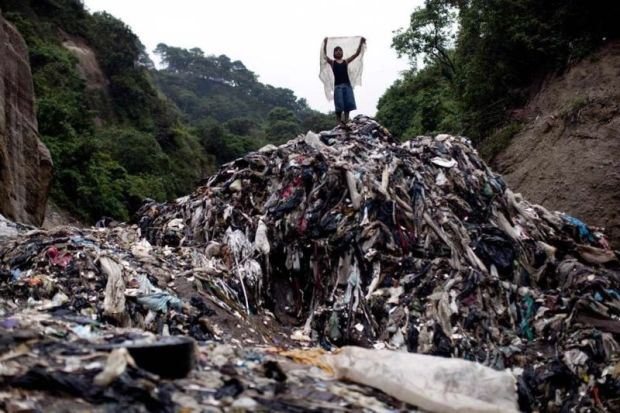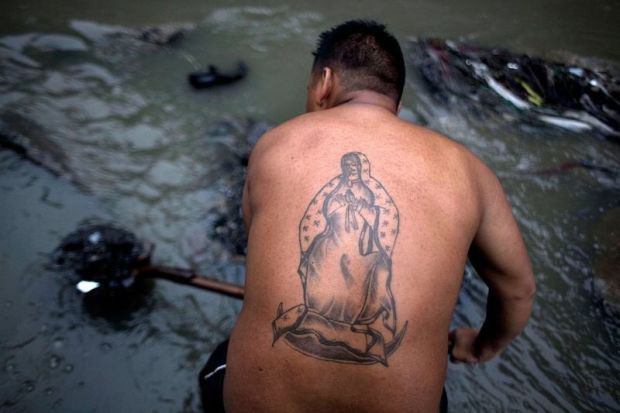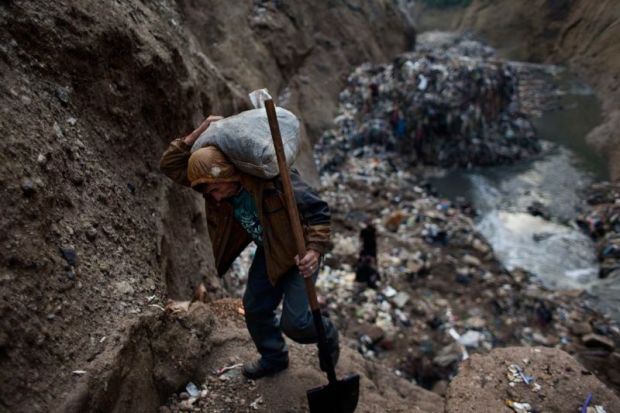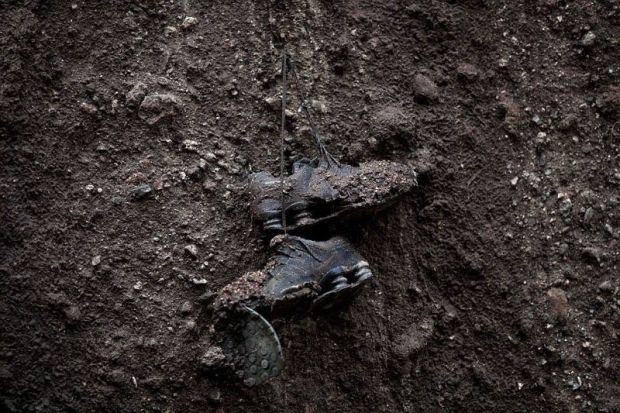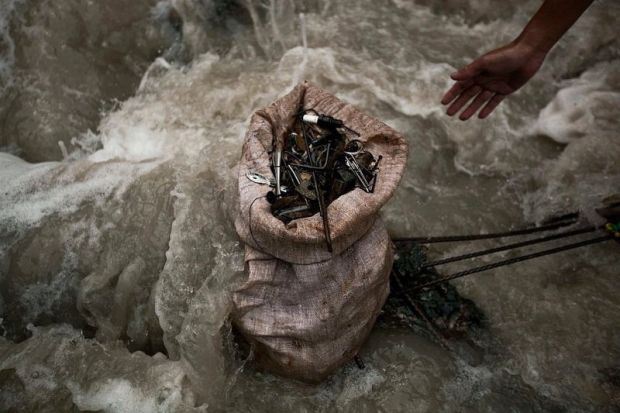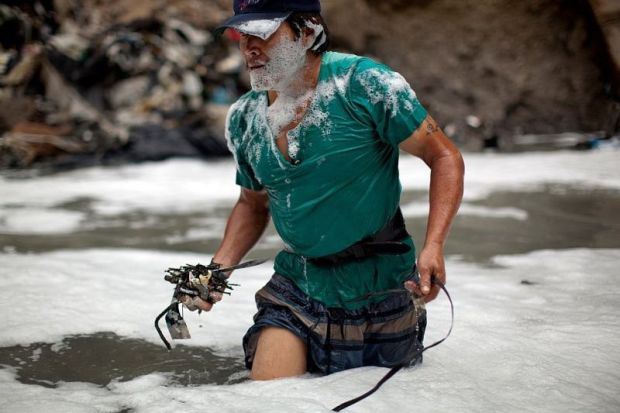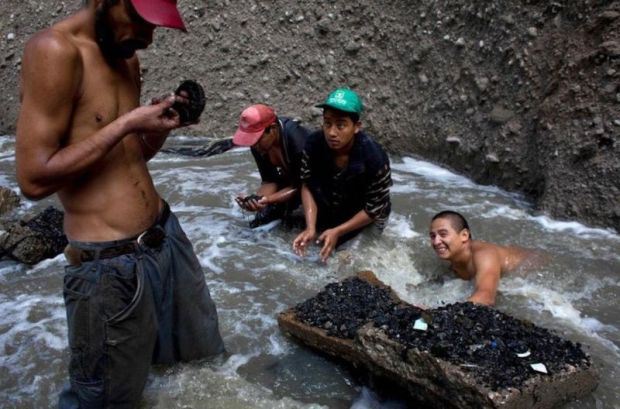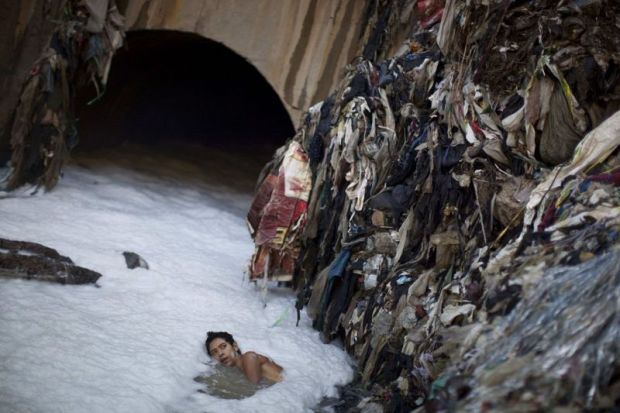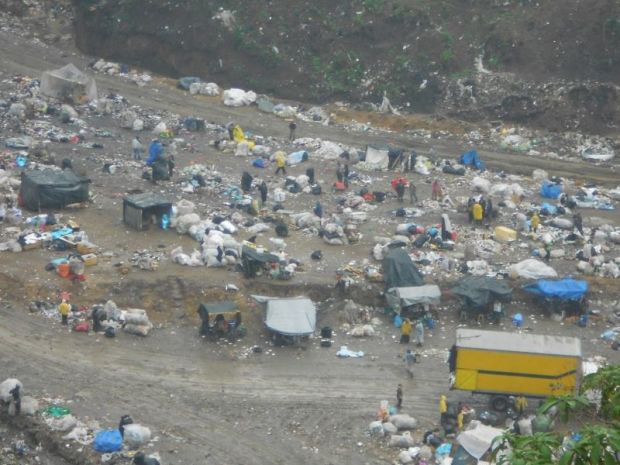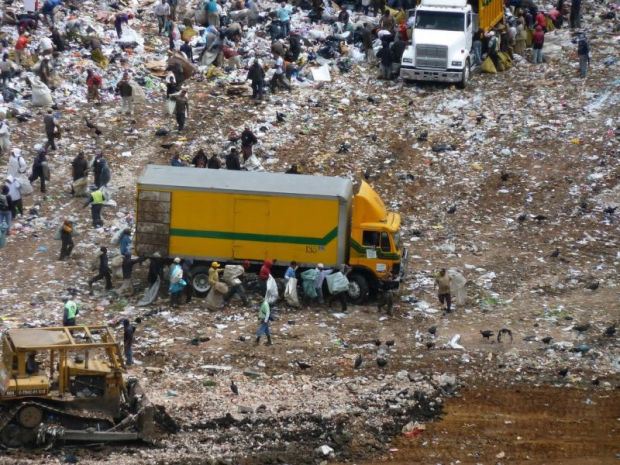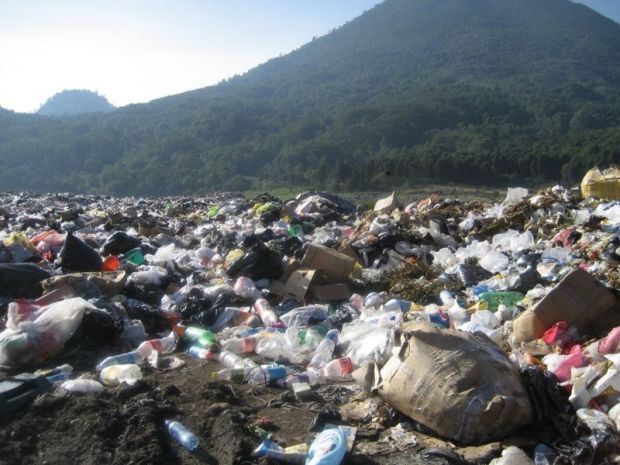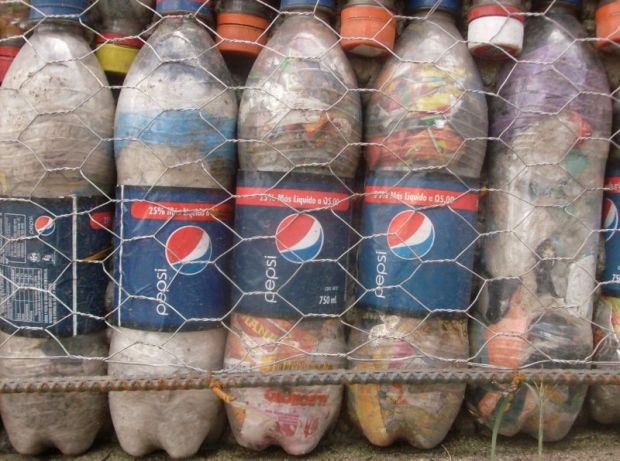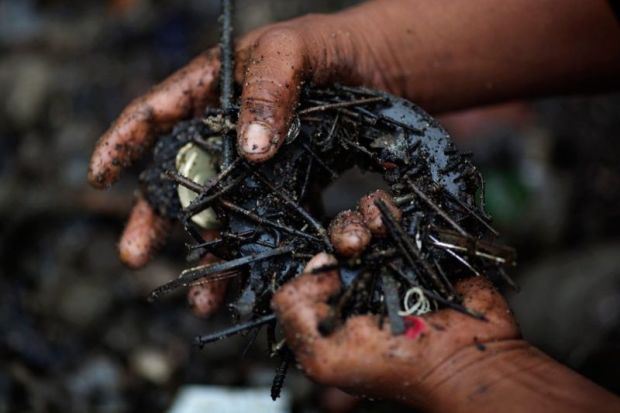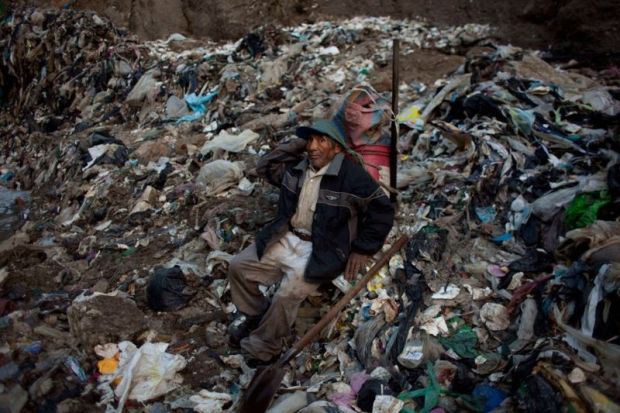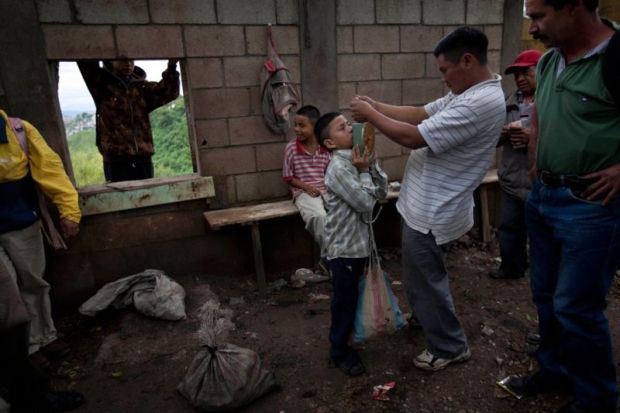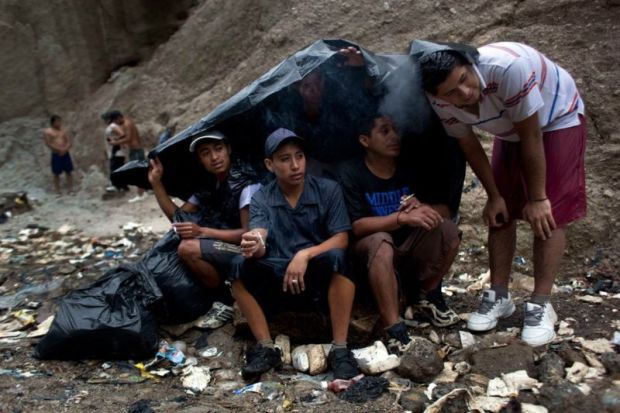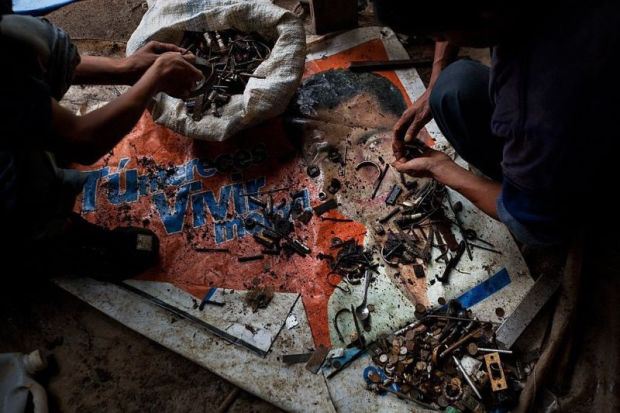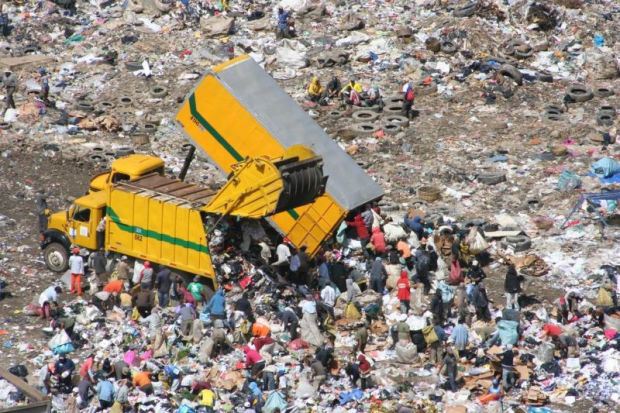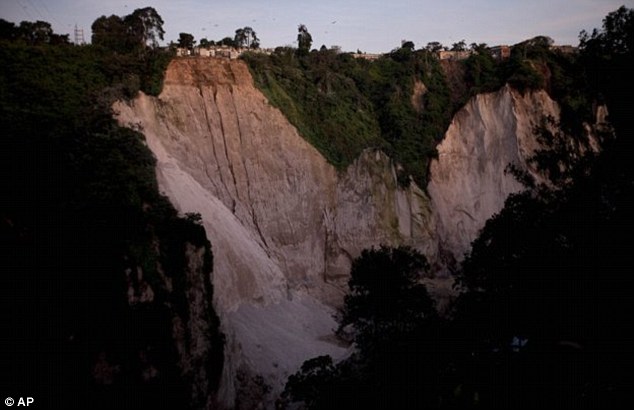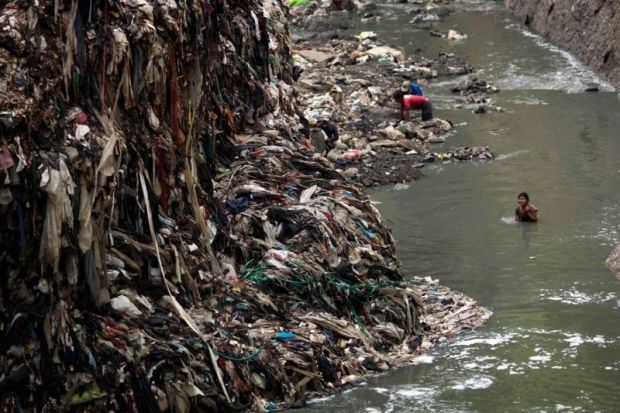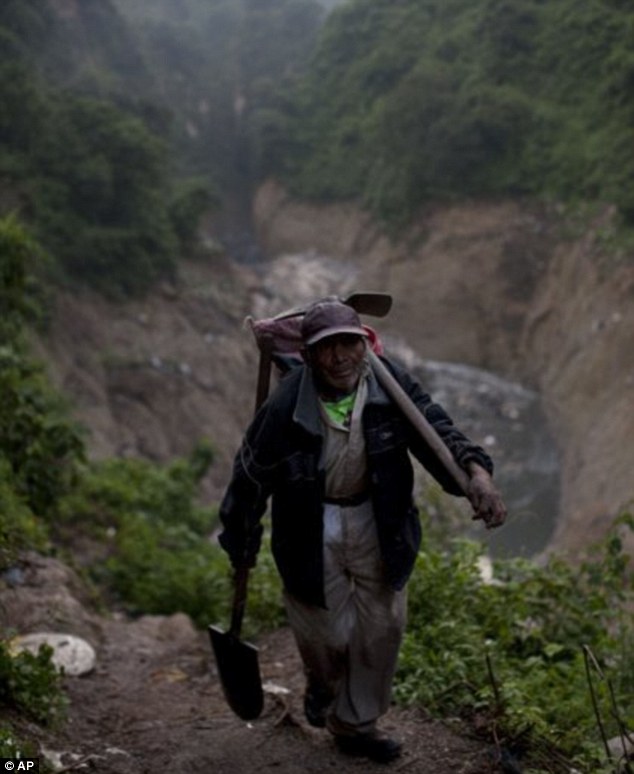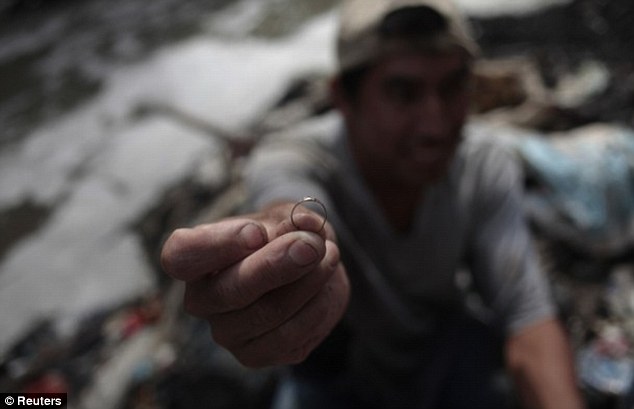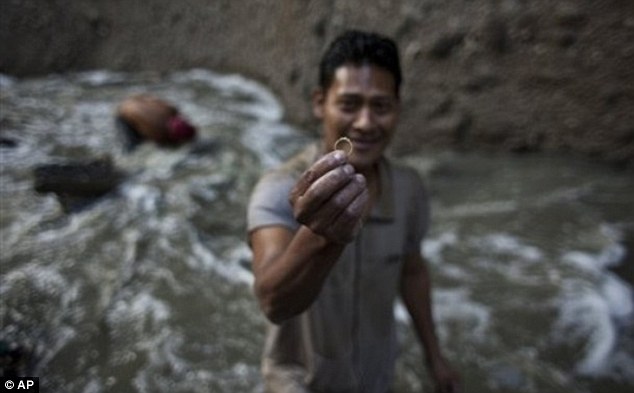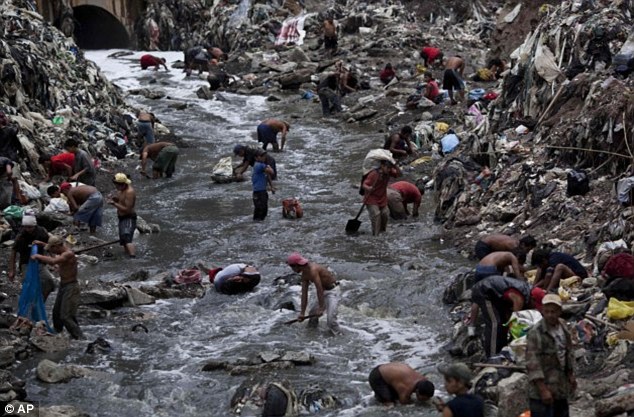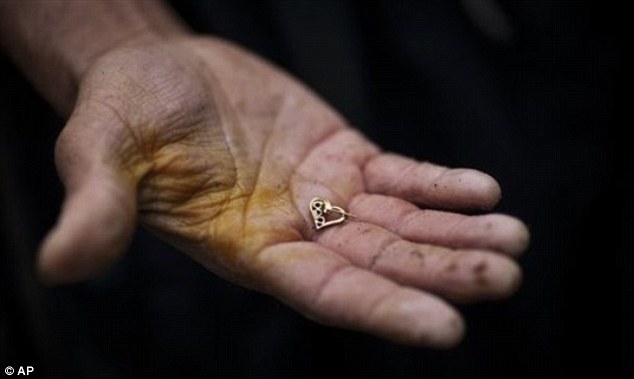Guatemala’s toxic river of trash that is attracting thousands of ‘miners’ risking life in search of gold and jewellery
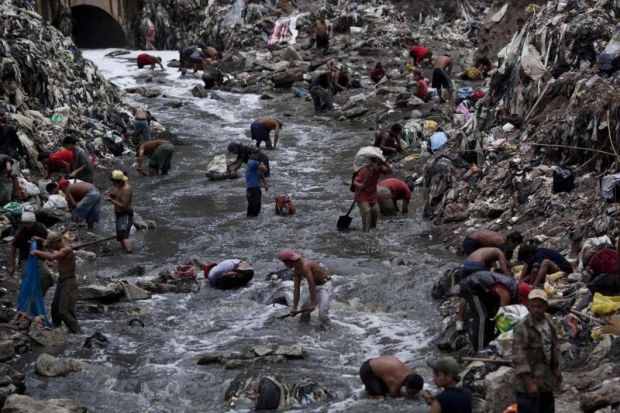
Amidst a torrent of grey, toxic water, these are the men who call themselves ‘miners’ as they risk their lives in search for gold and jewellery in a garbage-filled gorge.
The water spews from a drainage tunnel and surges along the ravine, tumbling along trash that has fallen from Guatemala City’s landfill 1,000 feet above.
Despite the foul odours, the danger of unstable piles of garbage collapsing and the chance for heavy rain to suddenly raise the water level, dozens of people are busily at work searching for jewellery and other metal scraps knocked loose from the trash.
They call the ravine the ‘mine’, and refer to themselves as ‘miners’.
Every day, about 300 hike to the bottom of the ravine in Guatemala's capital and wade into the water in search of rings and bracelets made of silver or gold.
The water sifts and carries away the lighter garbage, leaving heavy metals on the stream bed.
‘I make more money coming here than going to a company where they would continually scold me,’ says 41-year-old Eddie Miranda.
He says he finds scraps worth 150 quetzals, or £12.50 ($20), almost every day.
He got lucky on a recent day. ‘I found a bracelet with 9 grams (0.32 avoir ounces) of gold. I got 2,000 quetzals or £159 ($256) for it.’
It may not seem like much, but it's almost as much as the monthly £170 ($270) minimum wage in this Central American nation.
At dawn, the scavengers arrive much as if coming to a regular work place.
Many are wearing clean, ironed shirts and even whistling. They carry shovels and backpacks filled with their garbage bags, snacks and change of clothes.
They leave their dry clothes at an improvised camp and start looking for treasures.
Scavenging, which is prohibited by the government, can get particularly dangerous during storm season.
The workers say many have died while trying to pick garbage out of water raging through the ravine.
Dozens perished one day in 2008 when a mountain of garbage collapsed on them.
‘The piles of rubbish and dirt bounced off the bottom of the river and dragged me while I was trying to escape,’ said Antonio Yupe, 32, a scavenger who survived the disaster.
‘I took a lot of spins. I broke my leg. I don't know how, but I was buried with my face uncovered, so I could breathe until I was rescued.’
Still, the ‘miners’ call the dangerous heavy rain ‘the blessing of winter’, because the increased flow of water improves their chances of finding more metal.
If the scavengers don't find jewellery, they collect screws, faucets and other recyclable metal items that they can sell for 85 cents a pound. That amounts to twice the minimum wage for an average trip.
A few meters from the mouth of the tunnel, 35-year-old Avelino Perez and 19-year-old Julio Leja are up to their necks in water, surrounded by towering mounds of garbage.
They push their shovels down into the current to bring up scrap metal, food containers and other objects.
Perez seems happy. He shows off a dirty Roman Catholic cross he has plucked from the bottom.
His fingers look burned with acid and his nails are yellow. But he smiles.
‘It's gold. I may get 500 quetzals or £40 ($65) for it.’
Политика конфиденциальности | Правила пользования сайтом
